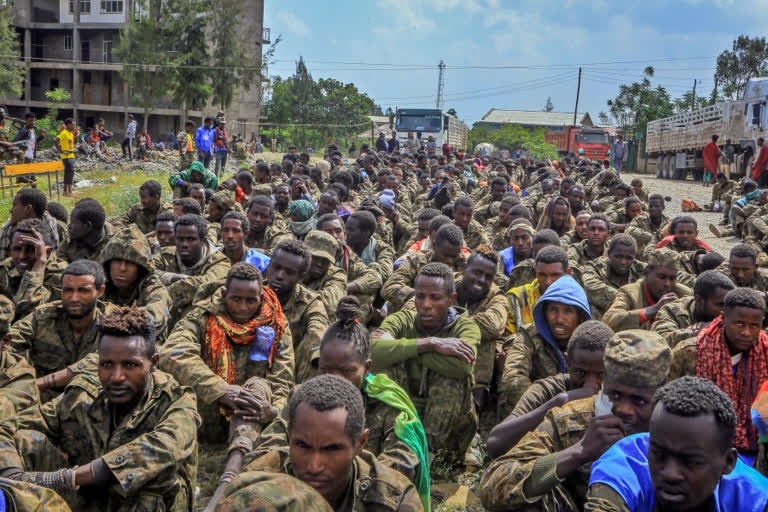Nairobi (Kenya): The findings of the only human rights investigation allowed in Ethiopia's blockaded Tigray region will be released Wednesday, a year after war began there. But people with knowledge of the probe say it has been limited by authorities who recently expelled a U.N. staffer helping to lead it.
And yet, with groups such as Human Rights Watch and Amnesty International barred from Tigray, along with foreign media, the report may be the world's only official source of information on atrocities in the war, which began in November 2020 after a political falling-out between the Tigray forces that long dominated the national government and Prime Minister Abiy Ahmed's current government. The conflict has been marked by gang rapes, mass expulsions, deliberate starvation and thousands of deaths.
The joint investigation by the U.N. human rights office and the government-created Ethiopian Human Rights Commission, or EHRC, is a rare collaboration that immediately raised concerns among ethnic Tigrayans, human rights groups and other observers about impartiality and government influence.
In response to questions from The Associated Press, the U.N. human rights office in Geneva said it wouldn't have been able to enter Tigray without the partnership with the rights commission. Although past joint investigations occurred in Afghanistan and Uganda, the U.N. said, "the current one is unique in terms of magnitude and context."
But Ethiopia's government has given no basis for expelling U.N. human rights officer Sonny Onyegbula last month, the U.N. added, and without an explanation "we cannot accept the allegation that our staff member ... was 'meddling in the internal affairs' of Ethiopia."
Also read:Ethiopia rejects independent investigations into Tigray conflict
Because of those circumstances, and the fact that the U.N. left the investigation to its less experienced regional office in Ethiopia, the new report is "automatically suspect," said David Crane, founder of the Global Accountability Network and founding chief prosecutor for the Special Court for Sierra Leone, an international tribunal.
"What you need when you go into an atrocity zone is a clean slate so outside investigators can look into it neutrally, dispassionately," Crane said. "You want to do these things where you don't build doubt, distrust from the beginning," including among people interviewed.
The investigation might be the international community's only chance to collect facts on the ground, he said, but because of its setup, it may disappear "in the sands of time."
People close to the investigation, speaking on condition of anonymity for fear of retaliation, asserted that the head of the Ethiopian Human Rights Commission, Daniel Bekele, underplayed some allegations that fighters from the country's Amhara region were responsible for abuses in Tigray and pressed instead to highlight abuses by Tigray forces.
That's even though witnesses have said the perpetrators of most abuses were soldiers from neighbouring Eritrea, Ethiopian forces and Amhara regional forces.
In response to AP's questions, Bekele asserted his commission's independence, saying it is "primarily accountable to the people it is created to serve." Attempts to influence the investigation, he added, can come from "many directions" in such a polarized environment.
Bekele said he and the commission have consistently cited "serious indications that all parties involved in the conflict have committed atrocities."
